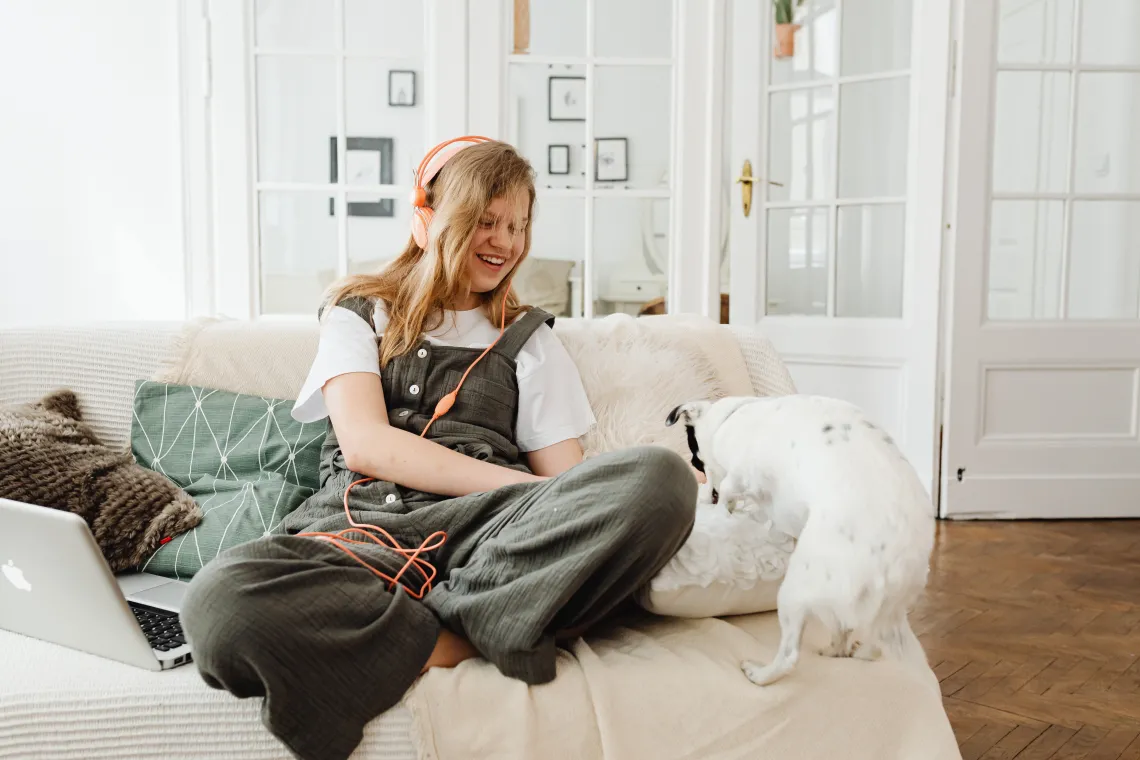Happiness Makes a Difference
Happiness is good for your body and mind (and it feels good too).

Feel Energized & Confident
Feel more energized and confident by using your unique strengths and taking a holistic approach to self-care. Start wherever you are by naming at least one strength you have and one action that supports your wellbeing. Then, do something about it. Be intentional about using that strength and schedule that wellness activity sometime next 24 hours and notice how you feel.
Nurture Well-Rounded Wellbeing
You're multidimensional. Your self-care should be too. Research backs this up! When we incorporate all the basic building blocks of happiness into our daily life and use our unique strengths, we experience more happiness and less stress.
Try It Yourself
Build Happiness In
PERMA-V represents the basic building blocks of happiness. Here's what it means:
- positive emotion
- engagement
- positive relationships
- meaning
- accomplishment
- vitality
All of these areas play a role in your happiness and wellbeing. What's one thing you can do to build more happiness into your daily life?
Take a Bird's Eye View
Zoom out and look at these domains of wellbeing:
- Academic
- Emotional
- Environmental
- Financial
- Interpersonal
- Occupational
- Physical
- Spiritual
- Stage of Life
What's working well for you? What areas could use a little attention?

Talk to Yourself Like You'd Talk to a Friend
We talk to ourselves all day long, whether we know it or not. That self-talk plays a huge role in the way you feel and the choices you make. You can support your mental health and happiness by getting to know that self-talk and practicing guiding to a positive place.
3 Ways to Practice Positive Self-Talk
Notice When It's Easy
The next time you're feeling good, notice how you're talking to yourself. Becoming familiar with our natural positive self-talk makes it easier to spot unhelpful thoughts and take them in a more constructive direction.
Notice How You Encourage Your Friends
Many of us find that kindness comes more naturally with others than it does with ourselves. The next time you're stuck in an unhelpful thought, ask: What would I tell a friend?
Create a Personal Affirmation
To create a personal affirmation, start with a list of empowering beliefs or aspects of yourself. Distill this list down a word or phrase that's meaningful and easy to remember. Keep this phrase visible and repeat it often.
Put It All Together

Boost Your Mindset
Your perspective shapes your mental health and happiness. It influences the way you see yourself and the world around you, how you feel, and how you respond to stressful situations.
2 Ways to Develop a Healthy Mindset
During the Good Times
When good things happen, see them as stable and meaningful. Allow yourself to feel good and even give yourself a little credit for that good thing coming about.
During Challenges
Life's challenges feel worse when we view them as personal, permanent, and insurmountable. It's helpful to instead view challenges as a natural part of life and yourself as capable of growing through them.

Think More Positively
Appreciating the things going on in our lives and looking forward to the future is good for our mental health. The best part is, it doesn't have to be something big to make a difference. Gratitude and optimism about the little things can boost our mood, lower or stress, and improve our health and happiness.
Strategies for Practicing Gratitude & Optimism
Find Something to Look Forward to
Name at least one thing about tomorrow you're looking forward to.
Do a Day in Review
At the end of the day, name at least one good thing that happened.
Stop & Smell the Roses
Take a few extra seconds to appreciate the good things when they happen.
Web of Gratitude Game
Name all the steps and people involved in making something you appreciate available to you.
Envision Your Best Possible Self
Spend time picturing your highest vision for yourself and your goals in an important area of your life.
Get Inspired
Take time out for awe and inspiration. Listen to an inspirational song, watch a documentary about someone you admire, or spend time in nature.

